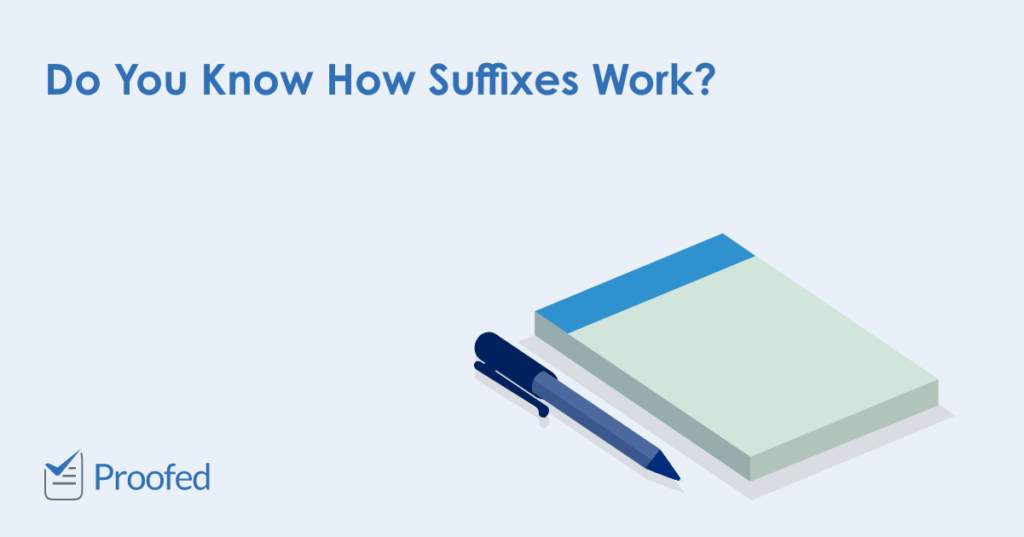In English, you can often build new words by attaching a suffix to the end of an existing word. For example, we can add the suffix “-er” to the word “proofread” to make “proofreader” (i.e., a person who proofreads). Simple, right? Unfortunately, there are dozens of suffixes in English, which can be confusing. So, what exactly are suffixes? And how are they used?
What Are Suffixes?
As suggested above, suffixes are common word endings.
For example, the “-er” suffix used above is often attached to a verb (e.g., “work” or “employ”) to create a noun that stands for the person who performs the action (e.g., a “worker” or an “employer”).
(Photo: OctavY/Pixabay)
However, not every suffix can be added to every word. For instance, while we add the suffix “-ful” to “care” to make “careful” (i.e., something characterized by care), we can’t add it to the word “work” to make “workful.” There’s no strict reason for this. It just isn’t standard English.
Nor is every word that ends in a suffix based on a common English word. The suffix “-logy,” for instance, is used in words like “biology” and “geology.” However, you will not find the words “bio” or “geo” used by themselves (these are prefixes that go at the start of other words). So if you’re ever unsure whether a suffix works with a particular word, be sure to look it up.
Spelling Changes when Adding a Suffix
Look out for words that change spelling when adding a suffix. These include words that end in “y” (which changes to “i”) or “e” (which is often dropped):
Beauty + -ful = Beautiful
Write + -ing = Writing
In English, we also double the final consonant in some words when adding a suffix. The most common examples of this include:
- When a single-syllable word ends in one vowel followed by one consonant (e.g., “run” becomes “runner” when we add “-er”).
- When the final syllable in a word is stressed (e.g., “regret” becomes “regrettable” and “occur” becomes “occurring”).
There are exceptions to these spelling rules, though (e.g., American English does not double the “l” in words like “traveler”). So be sure to double check any term you’re unsure about when adding a suffix.
Some Common Suffixes
We won’t list every English suffix here, but we will provide a few examples so you know what to look for. Some suffixes you might encounter include:
|
Suffix |
Usage/Meaning |
Examples |
|
-able |
Capable of or susceptible to |
Believe → Believable Question → Questionable |
|
-dom |
Used to form nouns that refer to a particular domain or general condition |
Free → Freedom King → Kingdom |
|
-est |
Used to form superlatives (i.e., the most of something or to the highest degree) |
Big → Biggest Happy → Happiest |
|
-ize |
Used for verbs, usually indicating a change |
Computer → Computerize Idol → Idolize |
|
-less |
Without |
Hope → Hopeless Care → Careless |
|
-ness |
Used for nouns that refer to a state or quality |
Bright → Brightness Dark → Darkness |
Keep an eye out for other common word endings when you’re writing. With enough practice, you’ll soon spot similarities among suffixes.
Find this useful?
Subscribe to our newsletter and get writing tips from our editors straight to your inbox.
And if you need more help with your writing, give our proofreading services a try! We’ll make sure all your suffixes are on point.
